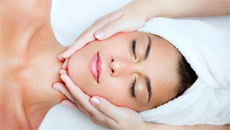The ABCs of moisturizing to achieve a supple, soft, smoother complexion
Years back when first interviewing David Vincent, Lise Watier’s brand makeup artist, his singular, most important beauty tip was just three words: hydration, hydration, hydration. Okay, one word, three times, but you get the point. Beautiful skin is what we strive for, but it doesn’t just mean beauty. It signifies good health and vitality. The idea is simple: hydration is the key to achieving radiant skin and avoiding premature aging. Yet with so many products and approaches to skincare, there are misconceptions and confusion about something seemingly so straightforward. “Everyone needs to hydrate their skin,” says Jessica Kizovski, founder and lead formulator for new Canadian brand Veriphy Skincare. “Many people believe they can skip the moisturizing step in their skincare routine, especially individuals with an oily skin type. Your skin is the last place to get water and providing your skin with hydration allows it to function properly.”

The misconception that oily skin doesn’t need moisturizing is something that Celine Tadrissi, founder of skincare line Céla, has seen repeatedly in her experience treating skin at her Hammam Spa in Toronto. “It is important for all skin types to moisturize because skin will overcompensate for the lack of moisture by producing more oil,” Tadrissi says. Maintaining the right moisture balance will help control the oil production. And oil too is important to healthy skin. Again, it’s all about striking the right balance. “Dry skin requires oil and dehydrated skin requires water. Your skin can be lacking oil, water or both,” explains Kizovski. “Understanding your skin needs will make it easier to pick the proper skincare products. There are different skincare ingredients that will help prevent moisture loss or attract water from the air.”

Another misconception, says Tadrissi, is that that heavier creams and serums are more hydrating. “The key for moisturizing skin is to ensure you cleanse and exfoliate the skin properly to allow your moisturizer to penetrate,” she advises. No matter what your skin type or the time of year, moisturizing is necessary for optimal skin health. Tadrissi suggests using products that are specifically formulated with ingredients to address the delicate hydration and oil balance, such as squalene (which is now sustainably sourced from plants and not only sharks).
For Kizovski, she says that plant-derived glycogen (while admitting a certain bias) is a highly effective and innovative ingredient to support skin’s health. It is the cornerstone of Veriphy’s product formulations. “Glycogen binds large amounts of water and has the ability to energize your skin to produce other hydrating ingredients such as hyaluronic acid,” she explains. (Hyaluronic acid helps the skin retain moisture.)

Caring for our skin should begin early and not just when issues arise. Kizovski says it’s when skin is neglected that it becomes “susceptible to accelerated signs of aging, sun damage, acne, and skin diseases.” Inevitably, our skin changes as we age but Kizovski emphasizes that hydration is important no matter one’s age. “Hydrated skin runs like a well-oiled machine, smoothly running through its duties. Dehydrated and dry skin looks older and ages faster, which we can avoid by choosing skincare that delivers long-lasting hydration.”
Tadrissi stresses that moisturizers are the most important beauty products to use – for both face and body. “As we age, typically, the need to hydrate increases while cell turnover decreases,” she explains. Both experts suggest addressing hydration according to your skin type. For drier skin, Tadrissi suggests to layer with a serum or adding in a face oil (It’s a myth that face oils make skin oily.). And for an oily skin, a light gel moisturizer can be effective.

Knowing what not to do is as important as knowing what to do. With cleansing being an integral part of a skincare regimen, it’s imperative to avoid products that strip skin of hydration during cleansing process. Avoid products containing ethanol, says Kizovski. Skin should not feel tight after cleansing. She recommends “oil or cream cleansers for anyone with extremely dry skin.” Tadrissi agrees saying that alcohol-based products and harsh soaps should be completely avoided and adds that “acne cleansers and antibacterial soaps can strip the skin of its natural barrier and lead to dehydration.”

To optimize moisture retention, Tadrissi underscores the importance of exfoliation. Kizovski says to match a product to your skin type and advices adding a mask or treatment in your routine once or twice a week. She also encourages everyone to drink more water. “As we age, our skin naturally thins and the production of key components that make the skin firm and plump, such as hyaluronic acid, collagen, and elastin slow down,” Kizovski explains. “Listen to your skin and adjust your skincare routine as needed. Well-formulated skincare products will replenish these natural factors.”

